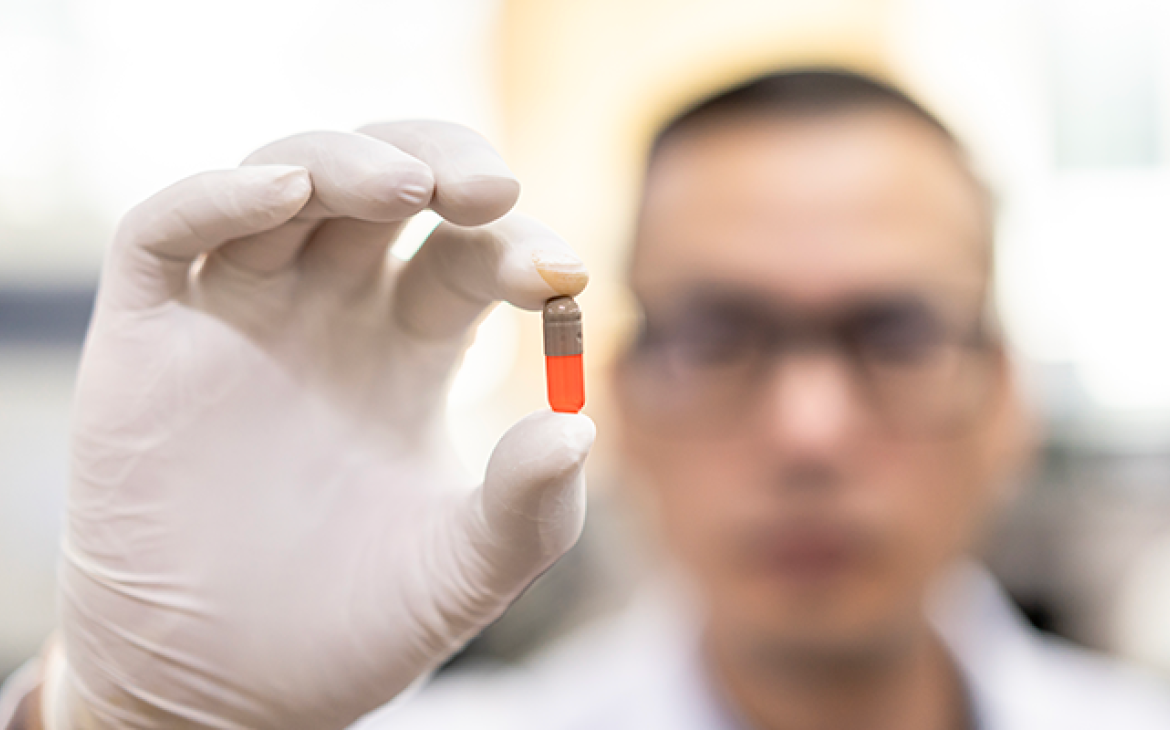
To help strengthen the pharmaceutical supply chain and guard against potential shortages that can impact patient care, it’s clear that more quality medicines need to be made in more places. As pharmaceutical continuous manufacturing (PCM) technology captures increasing stakeholder interest as one way to help achieve this goal, USP public quality standards and related programs will remain an essential part of the solution to support quality and innovation and bolster supply chain resilience.
USP’s rigorous scientific approach to public quality standards development helps manufacturers and regulators ensure medicines – including those made using PCM – are safe, work as intended, and are available when needed to support public trust. Today, USP is advancing standards and related programs that will help stakeholders bring more quality-assured PCM products to market faster and more efficiently to improve global health.
Standards support quality & innovation
Emergence of PCM as a national priority technology in recent years, supported by congressional funding and harmonized guidance development, has continued to gain attention among policymakers and others in the wake of COVID-19 to help address supply chain vulnerabilities made even more obvious during the pandemic.
Unlike traditional batch manufacturing, where active pharmaceutical ingredients (APIs) or finished medicines are made in intermittent steps that often take place in many different locations, PCM allows each element of manufacturing to take place in a continuous process in a single facility. Accordingly, PCM technology can help increase output and efficiency, lower costs, cut environmental footprints, accelerate production and scale-up in response to emergencies, and reduce dependence on foreign suppliers. While batch manufacturing will remain an essential pillar of global medicine manufacturing strength, the benefits of PCM can help facilitate increased domestic production of critical drugs and APIs in the U.S. and other countries to help guard against over-reliance on over-concentrated sources and the related potential for supply chain disruptions. In a recent USP survey, 90% of U.S. physician respondents agreed more medicines need to be made in the U.S. to help prevent medicine shortages.
For more than 200 years, USP standards have played an important role in the medicines supply chain, helping increase the availability of safe, quality medicines. As with other drugs, those made using innovative PCM technology are required by U.S. law to meet USP quality standards. Today, there are at least seven drug products/APIs approved in the U.S. manufactured using PCM, and at least three more overseas. Semi-continuous manufacturing is also growing in popularity.
Developed by scientists and other experts from industry, government, and academia, USP standards include those for determining drug identity, potency, purity, and the ability of the medicine to be properly absorbed by the body. Standards impacting PCM also include those used for measuring particle size, surface area, density, dissolution, uniformity of dosage units, and much more.
Since application of PCM is relatively new and continuing to evolve, USP is collaborating with stakeholders to explore where there is a need and opportunity to develop new PCM guidelines, best practices, and quality standards to help further accelerate innovation in manufacturing, support regulatory confidence, speed approvals and ensure public trust.
Capability building & filling knowledge gaps
To further support manufacturer innovation and adoption of PCM, USP is working through a strategic alliance to develop analytical methods for PCM manufacturing processes for use by manufacturers, and to set up a new lab for developing PCM methods and processes.
Similarly, USP is working to set up a flow chemistry R&D lab in Hyderabad, India to generate knowledge and inform industry regarding analytical procedures applicable to PCM, and to facilitate adoption of the technology in the region.
To address knowledge gaps that can present barriers to PCM adoption, USP is collaborating with stakeholders to provide educational courses and workshops, and expanded access to related information. Examples to date include USP’s creation of an online course in collaboration with Rutgers University on fundamentals of PCM, regulatory and operational requirements; an international PCM workshop in Mumbai, India focused on knowledge sharing and interactive discussion; and an online USP workshop on the topic held in collaboration with the Indian Pharmaceutical Alliance.
In April 2022, USP announced a collaboration with the National Institute for Pharmaceutical Technology and Education to create a central and comprehensive repository of PCM information accessible by all stakeholders, funded by FDA. The resulting USP CM Knowledge Center aims to capture, contextualize, organize and update rapidly expanding knowledge about PCM to help accelerate the adoption of PCM, increase supply chain resilience and benefit patients.
Building on USP’s role as a convenor of diverse stakeholders to facilitate standards development and access to quality-assured medicines, a recent USP Convention Exchange Series meeting on medicines supply chain challenges included discussion of PCM and other advanced manufacturing technologies, and overcoming related barriers to adoption.
USP stakeholder education materials available online – including a video, white paper and other resources – expand on the role of PCM in increasing supply chain resilience, the challenges to adoption, and policy concepts to promote implementation. Learn more about USP’s efforts to advance quality-focused solutions for a stronger medicines supply chain.


